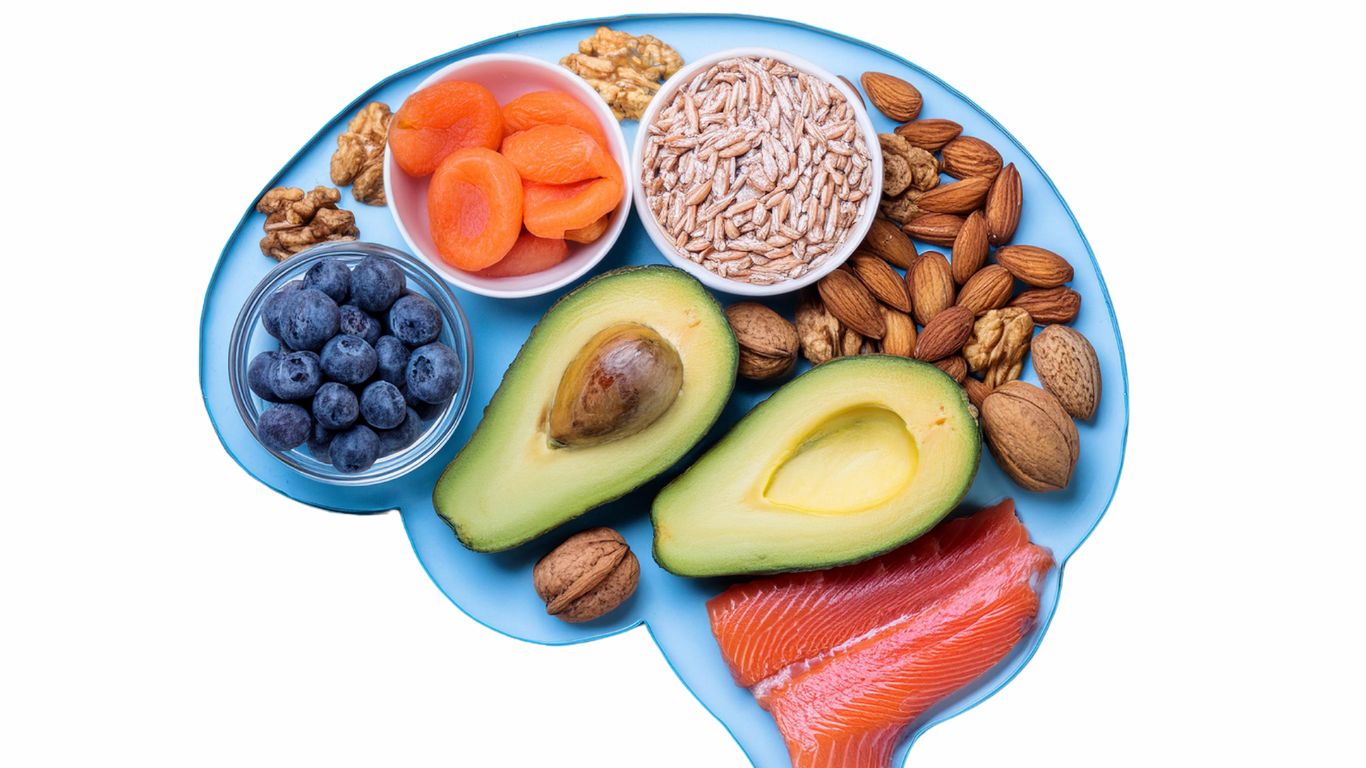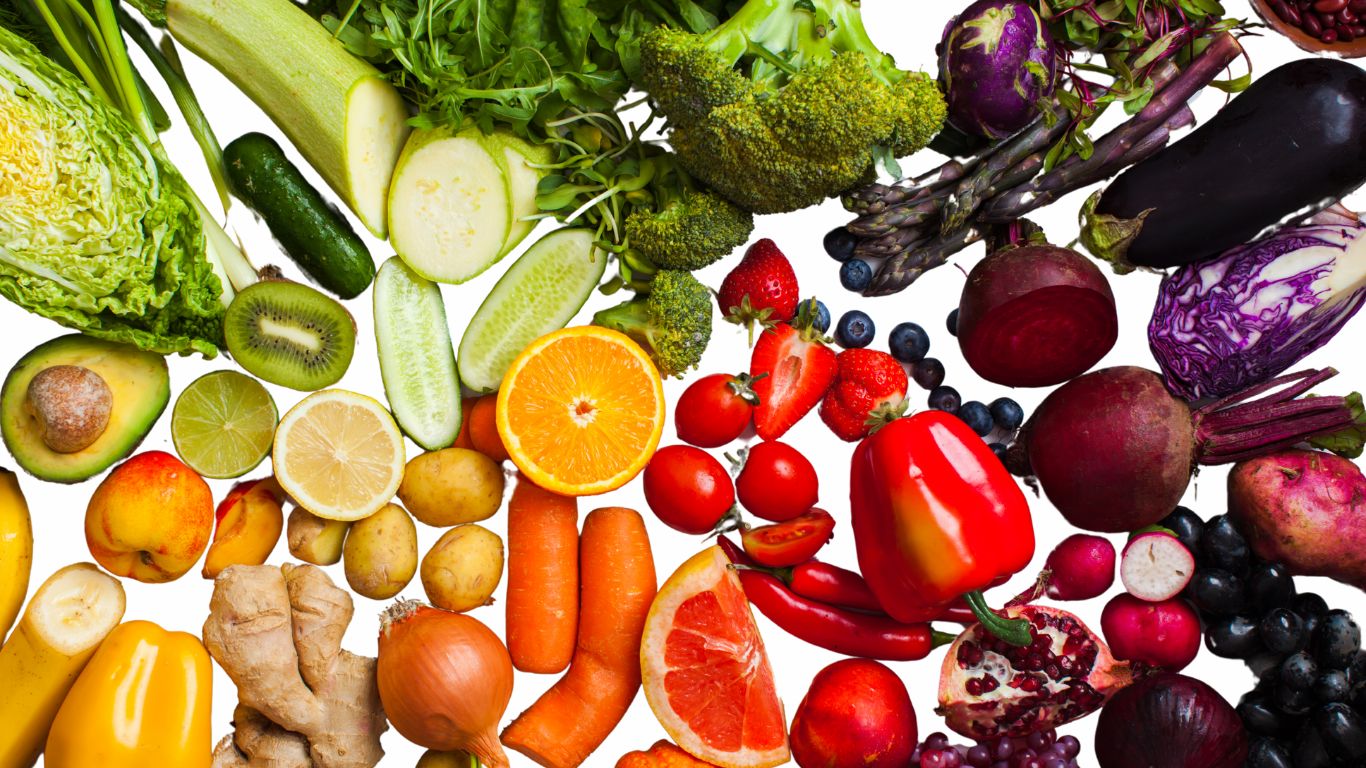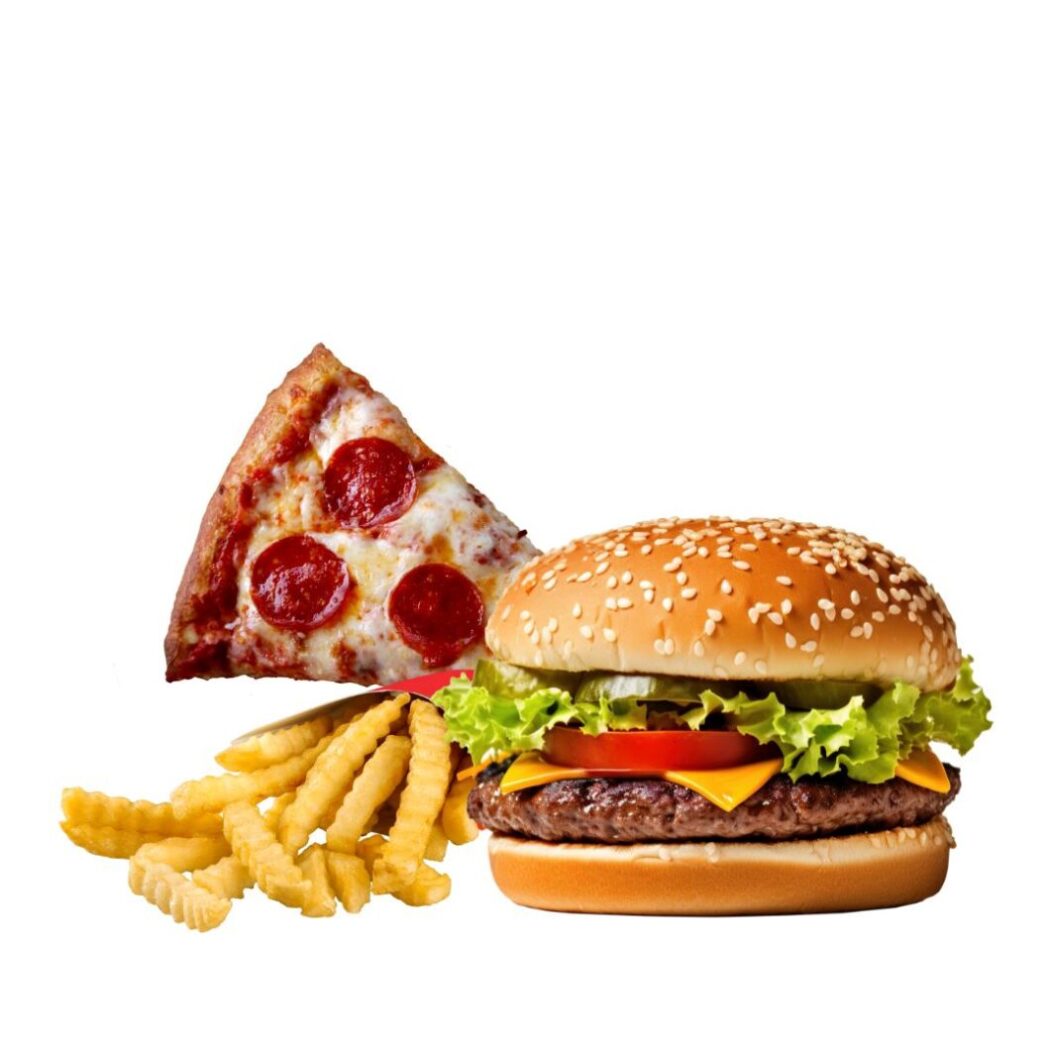Overview
What you eat doesn’t just affect your body – it can impact how you feel, think, and manage day-to-day life. More and more research shows a strong connection between what’s on your plate and your mental health.
While food isn’t a cure for mental health conditions, eating well can be an important part of supporting your overall well-being.
A balanced, nutrient-rich diet may help reduce symptoms of anxiety and depression, improve your mood, and support clearer thinking.
How Food Affects How You Feel

Brain Chemistry & Mood
Certain nutrients — like omega-3s, B vitamins, and proteins — play a role in how your brain makes mood-regulating chemicals such as serotonin and dopamine. These brain chemicals affect how calm, motivated, or balanced you feel.

Gut-Brain Connection
Your gut and brain are linked. A healthy gut, supported by fibre-rich foods, probiotics and prebiotics, can help reduce inflammation and maintain a healthy gut while supporting your mood and mental clarity.

Processed Sugar
Too much processed sugar and refined carbs can spike your energy and then crash it, leaving you feeling anxious, tired, or low. Cutting back on added sugars can help you feel more balanced.

Antioxidants
Brightly coloured fruits and vegetables (think berries, leafy greens, carrots, capsicum) are packed with antioxidants. These help protect your brain from stress and support emotional balance.

Ultra-Processed Foods
Fast food, packaged snacks, sugary drinks, and other ultra-processed foods might be convenient, but they often lack the nutrients your brain and body need. Regularly eating these types of foods has been linked to poorer mood, low energy, brain fog, and increased risk of depression. While they’re okay occasionally, too much can leave you feeling physically and mentally sluggish.”
Key Nutrients for Mental Health
Your brain needs the right fuel to function well. These nutrients are especially important:
- B Vitamins – Support brain energy and function (found in leafy greens, eggs, legumes, whole grains)
- Vitamin D – Linked to mood and immunity (found in sunlight, fatty fish, fortified foods)
- Magnesium – Helps with stress and sleep (found in dark chocolate, seeds, nuts, whole grains)
- Omega-3 Fatty Acids – Anti-inflammatory, mood-regulating and helps with brain function (found in fatty fish, flaxseeds, walnuts)
- Probiotics & Fibre – For gut health and the gut-brain link (found in yoghurt, kimchi, sauerkraut, whole grains, and legumes)
- Zinc – Supports the nervous system (found in seeds, shellfish, legumes, meat)
- Polyphenols – May help reduce inflammation, support brain function, and lower symptoms of anxiety and depression (found in foods like berries, tea, dark chocolate, and herbs)
- Protein – Support mental clarity and energy by helping your brain make neurotransmitters like dopamine and norepinephrine, which influence focus, motivation, and mood (found in foods like eggs, dairy, tofu, legumes, fish, and lean meats)
Including a wide range of colourful, plant-based foods in your meals is a simple way to get more brain-supporting nutrients.
Simple Tips for Eating Well for Your Mental Health
You don’t need to overhaul your diet overnight. Small changes can make a big difference:
- Eat a wide variety of whole foods
- Drink plenty of water throughout the day to stay hydrated
- Include colourful fruits and vegetables — aim for a rainbow on your plate
- Choose whole grains, lean proteins, healthy fats (from things like nuts, seeds, and olive oil), and high-fibre foods
- Limit ultra-processed foods and added sugars where you can
- Add fibre-rich foods to your diet to support digestion and gut health
- Enjoy treats in moderation — it’s all about balance
- If you’re not sure where to start, check in with a GP, nutritionist, or dietitian for personalised advice
Everyone’s body is different, so what works for one person may not work for another.
If you’re thinking about making big changes to your diet, talk to a dietitian, nutritionist, naturopath, or your GP to make sure it’s the right fit for you.
A Note on Eating Conditions
Eating for mental health looks different for everyone.
If you are living with or recovering from an eating condition, or if food, eating, or body image feel overwhelming, food and nutrition may be more complex for you.
Know that help is available. Support from a specialist who understands eating conditions can make all the difference so you can navigate this safely and with care.
Want to Learn More?
The Australian Guide to Healthy Eating is a great place to start. It offers simple tips, food group guides, and visual tools to help you make informed choices.
Speak with your GP or a qualified nutritionist, dietitian, or naturopath about your needs.
Other helpful resources
-
- Nutritional Psychiatry – Learn how diet supports brain chemistry
- Eating Well for a Healthy Headspace
- The Good Mood Food
